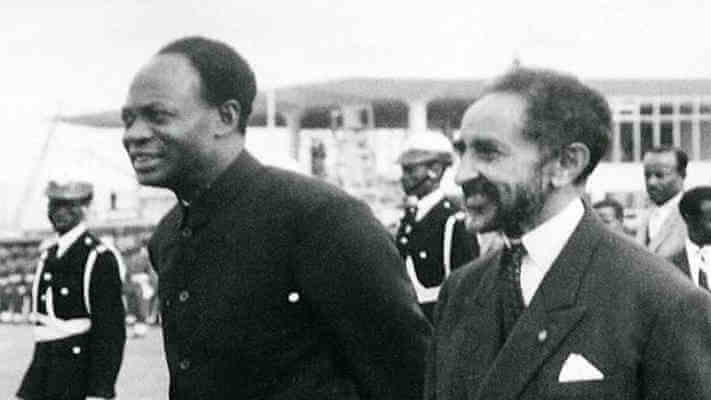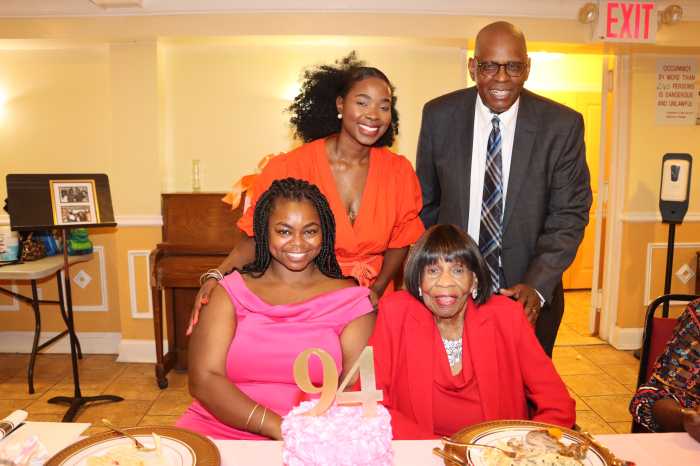Who is the “father of Africa?”
Sunday, Feb. 10 a commemorative statue of Emperor Haile Selassie I of Ethiopia was unveiled at the headquarters of the Organization of African Union (OAU) in the African capital city of Addis Ababa honoring the leader many consider worthy of the title.
One of the founding fathers of the Organization of African Unity (now the OAU) his image now reflects tangible and “significant recognition to the contribution” he made “for the liberation and unity of Africa leading up to the founding of the Organization of African Unity in 1963.”
Throughout his reign he was regarded as an advocate of the Pan-African movement which aims to unifying countries on the African continent as well as for his role in strengthening solidarity among the global African community.
At the start of the 32nd AU summit, African leaders from Egypt, Rwanda, Ghana and South Africa joined others from the continent to witness the historic ceremonial testament that now pays tribute to the lifelong contribution made by the last emperor of Ethiopia, a ruler esteemed by Rastafarians as a messiah and a revered African leader worthy of the title and adulation.
The installation of a statue at the headquarters of the AU is the second monument honoring an African leader. The first in 2012, regaled the legacy of Ghana’s Kwame Nkrumah another founding father of the OAU who antagonized colonialists.
Although the festive February ceremony seemed unanimously regaled by guests, family members and the AU fraternity, there are those that consider HIM Selassie I AKA Ras Tafari a sentimental symbol adored only by a fraction of the Ethiopian populous and a segment of the Jamaican community known as Rastafarians.
One of the contentions stems from a statement he reportedly made while visiting the island of Jamaica in 1966.
His critics harken back to a “We are not Black” response he allegedly made to a journalist there.
It might have been attributed to a sign of the times he lived because it was common then to refer to Nilotic or Bantu Africans as Black which Ethiopians are not.
Due to that statement and other allegations about persecution and enslavement of his people, along with differences in political perspectives and loyalties there are still divisions among intellectuals, Pan-African advocates and others as to whether he is deserving of the title “Father of Africa.
Unquestionably, HIM maintained a rigid stance for African liberation.
He was very vocal and determinably against colonization and imperialism in Africa.
Some hold fast to a devotion of Ghana’s first President Kwame Nkrumah.
His effort in ousting British rule to establish an independent nation seems valid argument for being the sole heir of such an auspicious monument and also the meritorious title of ‘father of Africa.”
Others argue that South Africa’s Nelson Mandela may be the most deserved for his lifelong sacrifice in championing a fight against apartheid and white rule.
And still others suggest Patrice Lumumba of the Congo, Amilcar Cabral of Bissau-Guinea and Cape Verde, Kenya’s Jomo Kenyatta, Mozambique’s Samora Machel and Edwardo Mondlane and other equally esteemed Africans who fought for the liberation of Africa. The Motherland has many fathers. HIM Selassie I is among the storied patriarchs.
GRAMMY REWARDS POP / REGGAE COLLABORATORS FROM ENGLAND & JAMAICA
Avid reggae music fans are not surprised that Sting and Shaggy won a miniature golden gramophone at the 61st annual Grammy Awards on Feb. 10. The British/Jamaica collaboration “44/876” was an easy win in the reggae category. A major publicity campaign all but guaranteed the favored choice of the five nominated when top television shows, a concert tour and even a performance in front of Queen Elizabeth II delivered maximum promotion. The song’s catchy beat did not hurt either. From showcases at Kingston’s Half-Way-Tree to a Good Morning America booking inside Central Park’s Summerstage it became evident that there was no stopping the infectious, pop-reggae track.
Shaggy won his first Grammy in the reggae album category in 1995 for “Boombastic.”
He was also nominated in the best pop collaboration with vocals category in 2001 for “It Wasn’t Me.”
The dancehall artist has been a five-time Grammy nominee.
Other 2018 nominees in the reggae category included Protoje, Etana, Black Uhuru and Ziggy Marley.
Catch You On The Inside!

























